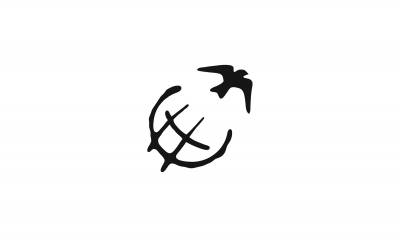Today, we join many around the world in commemorating Yom Hashoah—Holocaust Remembrance Day—in honor and memory of the six million Jews who perished as a result of Nazi crimes during World War II. With the recent antisemitic attacks on our campus, this occasion is made all the more somber for us here at UConn. We stand in solidarity with Jewish students, faculty, and staff in condemning these vile acts, and support the calls to action of the Center for Judaic Studies and Contemporary Jewish Life to create “a campus community where all feel welcome, safe, and secure, and where students, faculty, and staff of all backgrounds, faiths, and places of national origin are celebrated.“
In these attacks, Jewish members of our community were targeted with symbols of Nazi hate—the swastika and “SS” mark—symbols that we are all too familiar with at Dodd Human Rights Impact. Seventy-five years ago today, Thomas Dodd and his fellow prosecutors at Nuremberg were engaged in the epic work of exposing the depth of Nazi crimes and holding the perpetrators to account. Documents in the Dodd Papers, held in the UConn Library’s Archives and Special Collections, attest in horrific detail to the central role of the SS–or Schutzstaffel, Hitler’s most vicious and committed troops—in conceiving and executing the Holocaust. As one survivor of the SS-run concentration camps wrote, “the way of the swastika led directly to the glowing ovens of Auschwitz.”
The pain, fear, and anger these hateful acts have generated among the Jewish community must be understood in the context of the long and vicious history of antisemitism, of which the Holocaust was its most depraved expression, and of the global resurgence of antisemitism, authoritarianism, and white supremacy. Yom Hashoah calls on all of us to remember. Yom Hashoah also calls on us to recommit and to act against antisemitism, hate, and bigotry wherever it manifests itself, but especially when it appears in our community. We at the Human Rights Institute and Dodd Impact recognize this responsibility and will work in partnership to help build a more just and loving UConn.
Another survivor of the concentration camps, Elie Wiesel, said at the 1995 dedication of the Dodd Center:
So what do we do today to the memory of Nuremberg? We learn, we teach, in other words, we share. In other words still, we believe that that memory must open a channel to human rights. Why human rights? Because we realize that when a people is threatened, it doesn’t remain threatened alone. When a group is singled out, it affects all other groups. When I speak of the tragedy of the Jewish people, a unique tragedy, I never fail to say that it has universal implications.
Glenn Mitoma
Director, Dodd Human Rights Impact
Kathy Libal
Director, Human Rights Institute



